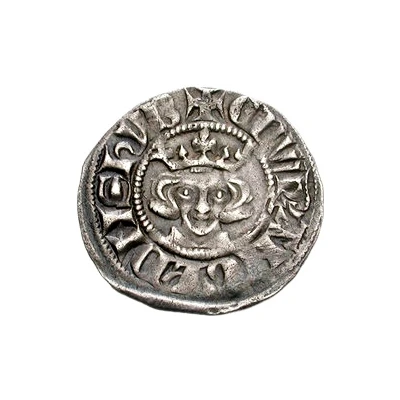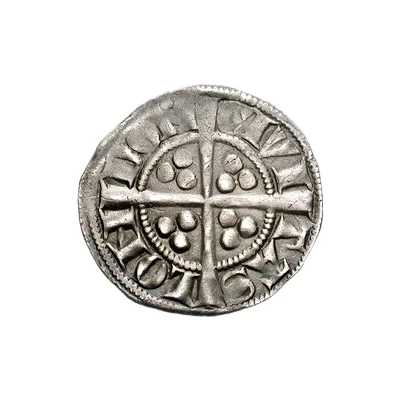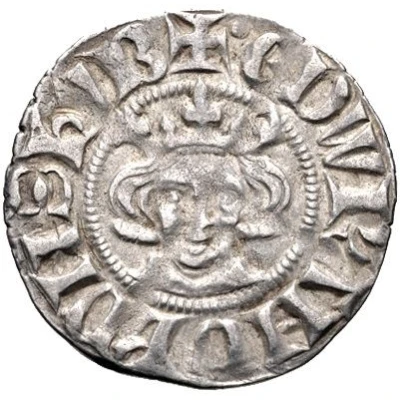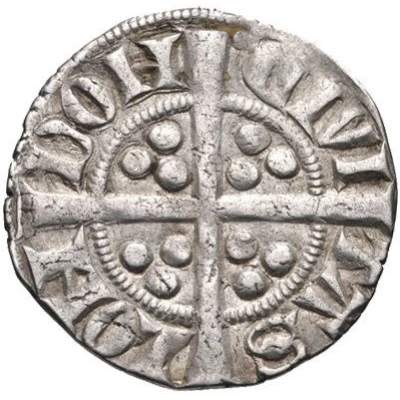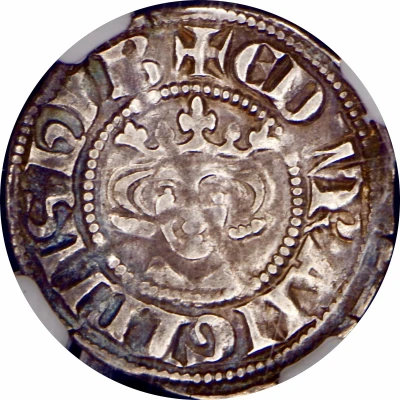
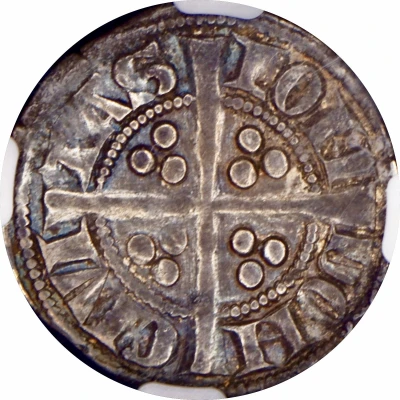

© Ryan White (CC BY)
1 Penny - Edward I Sterling type; class 4c ND
| Silver (.925) | 1.43 g | 18 mm |
| Issuer | England (United Kingdom, British Overseas Territories and Crown Dependencies) |
|---|---|
| King | Edward I (1272-1307) |
| Type | Standard circulation coin |
| Years | 1282-1289 |
| Value | 1 Penny (1⁄240) |
| Currency | Pound sterling (1158-1970) |
| Composition | Silver (.925) |
| Weight | 1.43 g |
| Diameter | 18 mm |
| Shape | Round (irregular) |
| Technique | Hammered |
| Orientation | Variable alignment ↺ |
| Demonetized | Yes |
| Updated | 2024-10-08 |
| Numista | N#221062 |
|---|---|
| Rarity index | 93% |
Reverse
Long cross pattée, trefoil of pellets in angles, mint name around.
Script: Latin (uncial)
Lettering: CIVI TAS LON DON
Lettering (regular font): CIVI TAS LON DON
Translation: City of London
Comment
House of Plantagenet (1154-1399), Edward I (1272-1307), Sterling coinage (1279-1307), Class 4c penny.Struck at the London, Bury (Sp#1417), Canterbury (Sp#1419) and Durham (Sp#1423) mints, 1282-89.
For more detail, please see Rod Blunt's website here.
Spink SCBC reference numbers:
The Spink Standard Catalogue of British Coins lists reference numbers in order for individual Edward I New Coinage types struck at the Tower mint, London and after that section, all the different types struck at a given provincial mint are grouped together under one reference number.
Interesting fact
One interesting fact about this coin is that it features a unique design element - a small cross on the reverse side, which is known as a "crosslet." This crosslet was added to the coin's design to indicate that it was minted at the Canterbury mint, which was one of the three mints operating in England during Edward I's reign. The other two mints were located in London and York. The crosslet is a distinctive feature that helps collectors and historians identify the coin's origin and authenticity.
